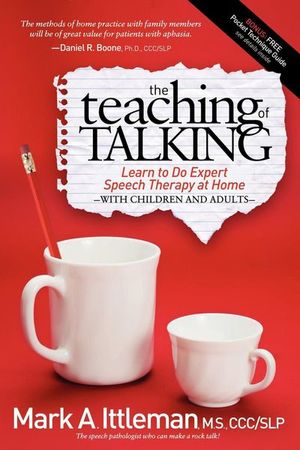The Teaching of Talking
Published by Morgan James Publishing
In this guide, a speech pathologist teaches readers the methods implemented to improve talking in others, so if need be, they can do therapy on their own.
People with speaking difficulties are at the mercy of insurance companies who are determining how often and for how long speech therapy services should be delivered. It is also a disturbing reality that the likelihood for therapy frequency and length of care is contingent upon either the level of competence or comfort level of the speech-language pathologist or the financial policies of each institution. Often it has nothing to do with the severity or need for speech therapy. Our health care system is in no position to bankroll the long-term therapy needed by the many people who have moderate to profound speaking difficulties. The goal of The Teaching of Talking is to ensure that any loved one, caregiver, or speech-language pathologist is thoroughly knowledgeable in methods to help people improve talking since it is never known when the plug will be pulled on speech and language therapy services.
Ittleman says, “I see hundreds of people with speech and language difficulties each year. By reading and applying The Teaching of Talking, you will have the confidence to help your client or loved one, no matter what the insurance company or institution does. By learning to do what is in The Teaching of Talking, you will be more self-sufficient and will not have to rely on anyone to provide your loved one with expert speech therapy.”
“The methods of home practice with family members will be of great value for patients with aphasia.” —Daniel R. Boone, PhD, CCC/SLP
BUY NOW FROM
COMMUNITY REVIEWS

